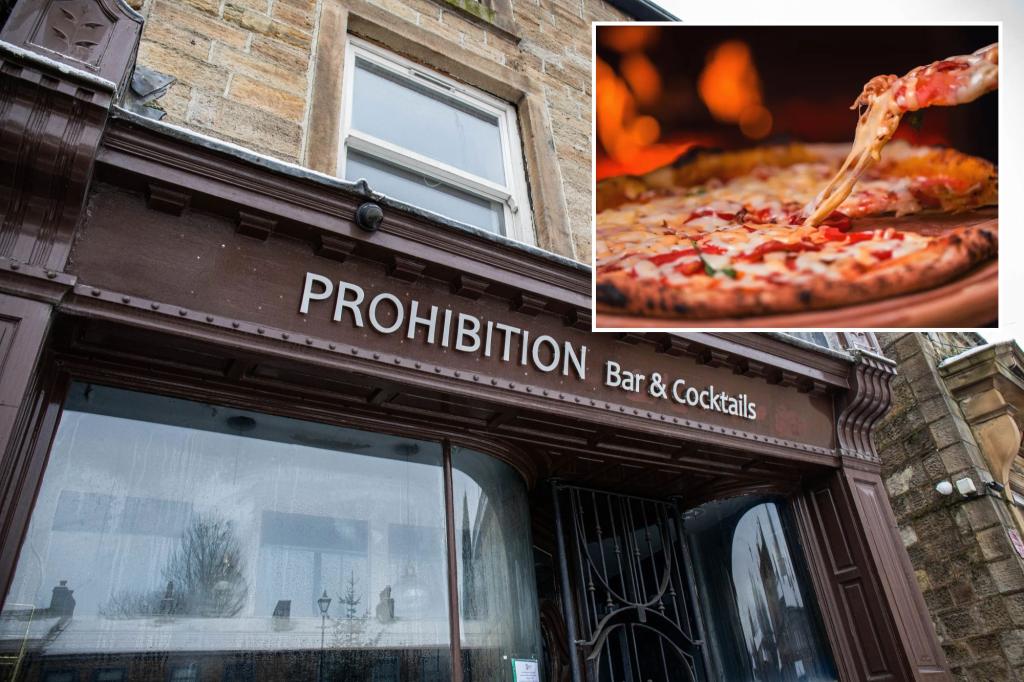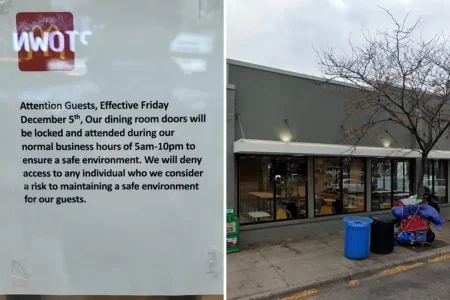The expansion plans of Woody’s Pizza, an independent takeout chain with two existing locations in West Yorkshire, have been rejected by Rossendale Borough Council in Lancashire. The company sought to open a third branch in Bacup, converting a former cafe and wine bar, promising to utilize local ingredients from Bacup Market and employ minimal salt and sugar in their recipes. However, the council cited concerns about childhood obesity rates in the area as the primary reason for refusal, aligning with their policy to restrict new takeaway establishments in areas where obesity prevalence exceeds specified thresholds. This decision mirrors a previous rejection in 2023 of a different hot food takeaway proposed for the same street, highlighting the council’s consistent stance on the issue.
The council’s decision has sparked debate among local residents and business owners. Eric Halliwell, a 75-year-old resident, expressed skepticism about the perceived childhood obesity problem, emphasizing the availability of fitness facilities and the need to attract businesses to revitalize the town. He argued that restricting such ventures would only push potential customers to neighboring areas, depriving Bacup of economic benefits and offering limited options for young people. He further stressed the lack of recreational activities for children in the town, suggesting that the focus should be on providing more engaging opportunities rather than limiting food choices.
Sarah O’Neill, co-owner of Nellie’s café, located near the proposed Woody’s site, offered a contrasting perspective. While acknowledging the importance of healthy eating, she advocated for granting opportunities to businesses offering healthy takeaway options. O’Neill, who also works as a nurse, emphasized the demand for nutritious and home-cooked meals, suggesting that a healthy takeaway could cater to this need and contribute positively to the community. She expressed her intention to apply for a takeaway license for her own café, and pledged to challenge any rejection based on the council’s obesity concerns.
The council’s decision has been met with mixed reactions and highlights the complexity of balancing public health concerns with economic development and community needs. The council’s justification for the rejection centered on the prevailing childhood obesity rates in the Greensclough ward, which, according to public health data, exceed the council’s thresholds for new takeaway approvals. Specifically, 20% of 10 to 11-year-olds and 11.6% of Reception-aged children are classified as obese, surpassing the 15% and 10% limits set by the council respectively. This data underscores the council’s concern about the potential contribution of readily accessible fast food to the existing health challenges in the community.
The council’s rejection notice also highlighted concerns beyond childhood obesity, including the potential negative impact on the living conditions of nearby residents. This suggests concerns about noise, litter, and other potential disturbances associated with late-night operations. Furthermore, the council’s senior planning officer, Claire Bradley, criticized the proposed takeaway for not enhancing the town’s heritage and for lacking diversity within the existing array of 26 takeaways already operating in Bacup. Two public comments echoed these concerns, particularly regarding the proposed 4pm to 10pm opening hours and the potential for anti-social behavior.
Woody’s Pizza, in its application, had sought to differentiate itself from typical takeaway establishments, emphasizing its commitment to fresh, locally sourced ingredients, minimized salt and sugar content, and responsible operating practices. The company highlighted its existing model of supporting local markets and businesses, promising to extend this practice to Bacup. They also emphasized their operational differences, such as avoiding excessive oil usage, late-night operations, and disruptive delivery practices. Despite these assurances, the council remained unconvinced, prioritizing the public health concerns and the perceived lack of added value to the town’s existing offerings. This decision underscores the challenges faced by businesses attempting to navigate complex local regulations and address competing community priorities.
The case of Woody’s Pizza’s rejected expansion plan in Bacup encapsulates the ongoing tension between promoting local business development and addressing public health concerns. The council’s decision, while rooted in data regarding childhood obesity rates, has sparked debate and highlighted the multifaceted nature of urban planning. While the council aims to protect the health of its younger residents, critics argue that such restrictions stifle economic growth and limit choices for consumers. The discussion also raises questions about the effectiveness of such policies in tackling obesity and the need for a more comprehensive approach that considers broader socioeconomic factors and promotes healthy lifestyle choices.
The situation in Bacup further underscores the need for a nuanced understanding of local contexts and community needs. While data on childhood obesity provides valuable insights, it’s crucial to consider other factors, such as the availability of healthy food options, access to recreational facilities, and the overall economic landscape. Balancing these considerations requires open dialogue between local authorities, businesses, and residents to develop solutions that address both public health and economic vitality. The debate surrounding Woody’s Pizza’s application serves as a microcosm of these broader challenges, highlighting the complexities of urban planning and the need for collaborative efforts to create thriving and healthy communities.















